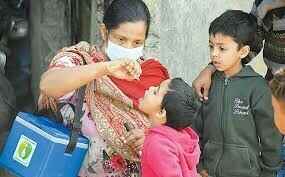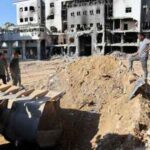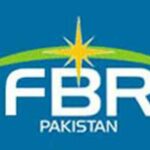ISLAMABAD: Up until last month, the polio virus was only discovered in 33 districts of Pakistan; however, on Wednesday, sewage samples from Hub were revealed to contain wild poliovirus type 1 (WPV1). Up until now, the district has not been affected by the virus.
In addition, three samples from regions that were already affected returned positive results, bringing the total for this year to 116.
Eight samples were found in two days after four samples tested positive for the virus, according to a spokesman for the Pakistan Polio Programme on Tuesday.
A poliovirus that was genetically connected to the imported YB3A genetic cluster of WPV1 was found in sewage samples taken from Karachi South, Karachi Central, Jamshoro, and Hub, according to the Regional Reference Lab for Polio Eradication at the National Institute of Health (NIH).
Thus far this year, the virus has been discovered in sewage samples from 34 regions. The YB3A cluster, which vanished from Pakistan in 2021 but persisted in circulation in Afghanistan and was reintroduced through cross-border transmission last year, is present in all positive samples as well as the two human cases reported in 2024, according to a health ministry official.
“In January and February, the Pakistan Polio Programme carried out four campaigns to immunize people against polio, including two statewide drives using the oral vaccine.
Over 43 million children under the age of five were reached by the program.
The official stated, “The next campaign is planned for the first week of June, ahead of the high travel season of Eid.”
“Polio is an extremely harmful and uncurable illness. In order to protect their children from 12 preventable diseases, the Polio Programme asks all parents and caregivers to make sure their kids receive all recommended vaccines at the appropriate times.
Children under the age of five are primarily affected by the extremely contagious disease polio. For youngsters, vaccination is the best line of defense against it.








